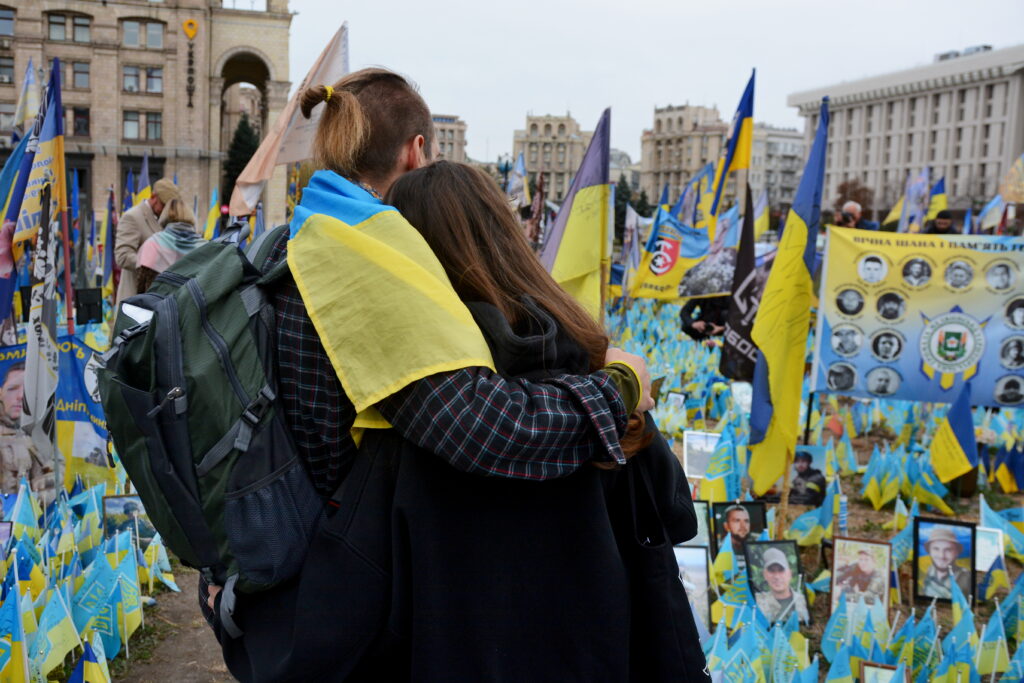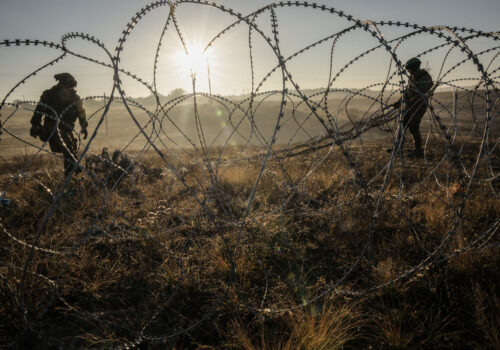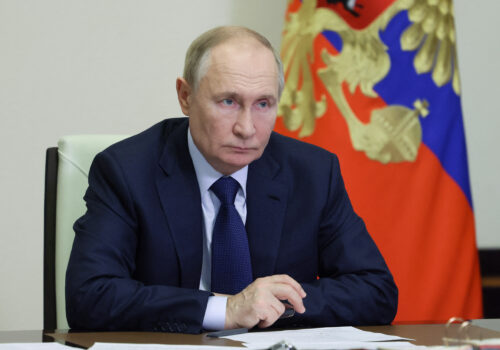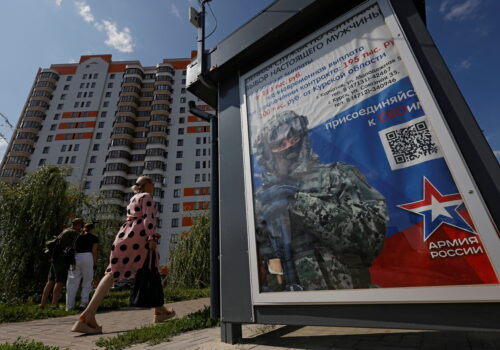This week sees the one thousandth day of the war launched by Vladimir Putin in February 2022. The Russian invasion of Ukraine is the largest European conflict since World War II, and one of the first major wars to be covered in real time on social media. Audiences around the world have watched in disbelief as the Russian army has advanced into Ukraine, reducing entire cities to rubble and displacing millions of people. For almost three years, this unfolding tragedy has been the world’s leading news story.
Few expected Ukraine to reach this week’s grim milestone. Indeed, on the eve of Russia’s full-scale invasion, the consensus was that any organized Ukrainian resistance would likely crumble within a matter days. In retrospect, it is now clear that both Vladimir Putin and the vast majority of international observers were equally guilty of underestimating Ukraine.
While their country has surpassed all expectations, Ukrainians have little to celebrate as the war passes the 1000-day mark. The Russian invasion has inflicted unparalleled suffering on Ukraine, with hundreds of thousands killed and more than fourteen million people forced to flee their homes. Huge numbers of Ukrainian service personnel and civilians have suffered life-changing injuries. For the men and women defending the country on the front lines, the physical and psychological toll from almost three years of relentless fighting has been immense.
Beyond the battlefield itself, the Russian invasion has plunged the entire Ukrainian population into a mental health crisis that will last for decades. Almost everyone has experienced some kind of personal loss or wartime trauma. In towns and cities across Ukraine, people have grown used to the daily routine of air raid alarms, bomb shelters, and electricity blackouts, all accompanied by gut-churning news of the latest Russian atrocities.
Stay updated
As the world watches the Russian invasion of Ukraine unfold, UkraineAlert delivers the best Atlantic Council expert insight and analysis on Ukraine twice a week directly to your inbox.
Despite the many horrors and hardships, Ukrainians have remained broadly united by a shared sense of purpose. While most people are understandably desperate for peace, there is also widespread recognition that Ukraine is fighting for national survival and faces destruction if Russia’s invasion succeeds. This has been made abundantly clear by the actions of the Russian army in areas of Ukraine under Kremlin control, with thousands of potential dissenters abducted and children sent for indoctrination to rob them of their Ukrainian heritage.
Most Ukrainians acknowledge the need to fight on, but there are growing concerns over continued international support. During the initial months of the invasion, the watching world was awed by Ukrainian courage and tenacity as the country fought back against the might of the Russian military. This helped convince Western leaders that arming Ukraine was both morally right and worthwhile. However, as the war has dragged on, grumbles over the cost of supplying the Ukrainian military have grown louder, as has the chorus of voices calling for some form of compromise with the Kremlin.
Every time Western leaders delay the delivery of military aid, the cost can be measured in Ukrainian lives. These delays enable Russia to bomb Ukrainian cities and advance further along the front lines of the war. Shortfalls in military support are also making it significantly harder for Ukraine to mobilize new troops for the army, with many potential recruits left alarmed by the prospect of being sent into battle without adequate weapons or armor.
While Kyiv struggles to convince wavering Western leaders, Moscow is creating an axis of autocrats to bolster the Russian war effort. Since the start of the full-scale invasion almost three years ago, Putin has strengthened ties with China, Iran, and North Korea, receiving a range of support including sanctioned high-tech weapons components, attack drones, ballistic missiles, and vast quantities of artillery shells. This alliance is playing an increasingly direct role in the invasion of Ukraine, with North Korean soldiers recently appearing on the battlefield.
Eurasia Center events

Donald Trump’s election victory is now fueling anticipation that the war is about to enter a new phase, with the incoming US administration expected to push for a negotiated settlement. Nobody wants to end the war more than Ukrainians, of course. At the same time, there are mounting concerns that Western efforts to pursue peace from a position of weakness may lead to Kremlin-friendly terms that would end up emboldening Putin and setting the stage for further Russian aggression.
Ukrainians have particularly painful memories of the failed peace process that followed Russia’s 2014 invasion of Crimea and eastern Ukraine’s Donbas region. For eight years, Russia refused to even acknowledge its direct involvement in hostilities, insisting instead on noncombatant status. This farcical situation made it virtually impossible to achieve any meaningful progress toward peace. It is now clear that while Moscow was pretending to engage in diplomatic efforts to end the war, Russia was busy preparing for the full-scale invasion of February 24, 2022.
Ahead of any peace talks, Ukrainians will be hoping their international allies have not lost sight of the huge costs they will face if they fail to stop Russia in Ukraine. The invasion launched by Putin one thousand days ago has already transformed the geopolitical landscape and led to the emergence of a formidable authoritarian alliance that shares a common commitment to ending the era of Western ascendancy. Russian success in Ukraine would dramatically strengthen this alliance, with alarming ramifications for the security situation everywhere from Central Europe to East Asia.
As the world reflects on one thousand days of Russia’s attack on Ukraine, the Ukrainian nation is exhausted but remains determined to end the war on terms that will allow the next generation to live in peace. This will not be possible without continued international support. Putin was wrong to assume that Ukraine would collapse in the wake of his invasion. Western leaders must now convince him that he is equally wrong to believe he can outlast them in Ukraine.
Kira Rudik is leader of the Golos party and a member of the Ukrainian parliament.
Further reading
The views expressed in UkraineAlert are solely those of the authors and do not necessarily reflect the views of the Atlantic Council, its staff, or its supporters.

The Eurasia Center’s mission is to enhance transatlantic cooperation in promoting stability, democratic values and prosperity in Eurasia, from Eastern Europe and Turkey in the West to the Caucasus, Russia and Central Asia in the East.
Follow us on social media
and support our work
Image: Aleksandr Gusev / SOPA Images via Reuters Connect




